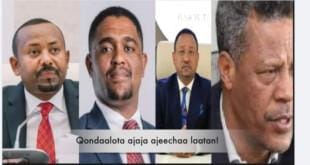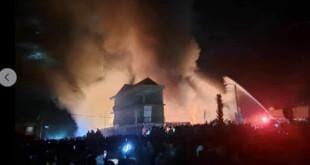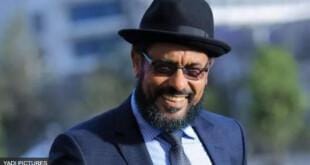Hawasa Oromo in the Netherlands | August 29, 2013
We members of the Hawasa Oromo in the Netherlands are stunned by the death of Tesfahun Chemeda Gurmessa in Ethiopian dungeon on the 24th of August 2013.
Tesfahun Chemeda was exemplary activist in Oromo student movement while he was studying in Finfinne/Addis Ababa University. After graduating in Civil Engineering, Tesfahun had served his people in his professional capacity as civil engineer for more than four years in Arsi, Ilu-Abbabora and in Wallaga. More and above all, Tesfahun was a man of high sense of justice, vibrant voice and strong advocate of freedom for the Oromo people. For mere reasons of these activisms, he was made one of the prime targets of persecution by the Woyane authorities and forced to flee to Kenya to escape the imminent danger from the perpetrators of the day.
While in exile in Kenya, Tesfahun sought international protection and granted refugee status by the UNHCR; and continued in his advocacy for freedom and justice among Oromo refugees in that country. Irrespective of the international protection granted to him in accordance with relevant international instruments, here again, he came up against the ghost of persecution he left behind. There, along with his fellow national-Mesfine Abebe, he was arrested by Kenyan authorities and handed over to his persecutors.
In the hands of his persecutors Tesfahun suffered all and every inhuman and degrading treatment: he was handcuffed, blindfolded and coercively taken back to Ethiopia; was victimized by kangaroo court verdict: detained in Maikelwai, the center that frequently houses political prisoners and is known for brutal abuse of detainees, including torturing during interrogations; was denied medical treatment and held in solitary confinement for more than a year in darkness that resulted in sight problem until and up to his death.
The death of Tesfahun Chemeda Gurmessa in such a situation is a case book of the current circumstances of the Oromo people. On the one hand, it casts a long shadow of historical injustices. On the other hand, it reveals the continuity of cruel slaughter of our people in contemporary time by the perpetrators of the day. Here, it suffice to recall the recent massacre in Asasa, Garba (Wallo) and Kofale under a blanket banner of the so-called terrorism.
In such testing time and circumstances, Oromos as people and their organizations as key players must pose the question; when would the specter of heinous persecution against Oromos end? Not only posing, the questions needs appropriate and timely answer. To this effect, we call upon our people-organized and unorganized to get prepared up to the challenge of the time.
In due course, the Hawasa Oromo in the Netherlands extend its condolence to the family of Tesfahun, to his relatives and friends and pray to have strength at this hours of grief.
Hawasa Oromo in the Netherlands
Executive Committee
Amsterdam/ The Netherlands




